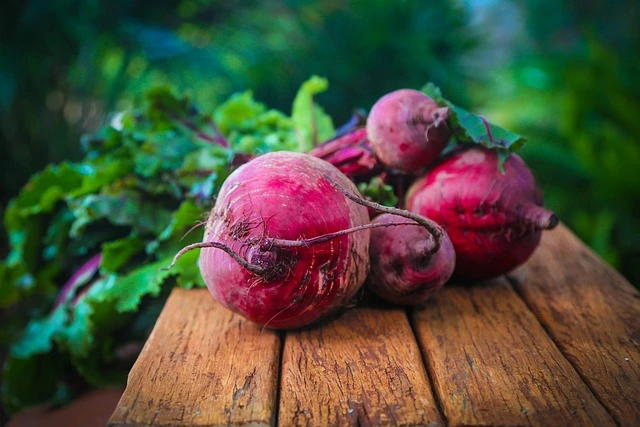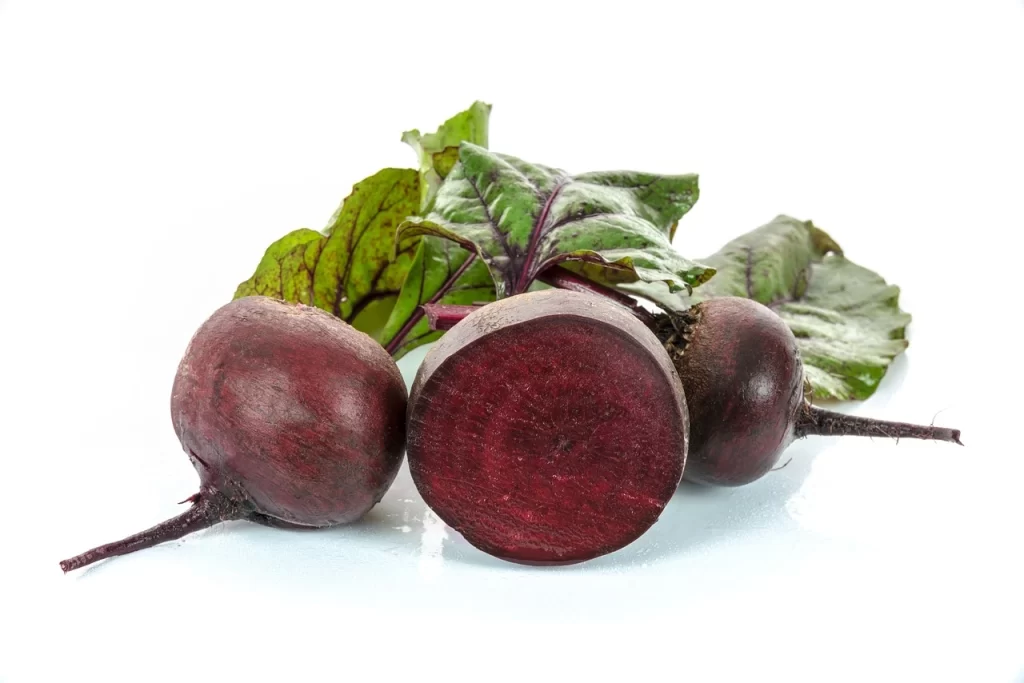Beetroot, also known as beets, is a root vegetable that has been cultivated for centuries for its nutritive and medicinal parcels. Then are some of the health benefits associated with consuming beetroot Lower blood pressure Studies have shown that consuming beetroot juice can help lower blood pressure in people with hypertension. This is allowed to be due to the high attention of nitrates in beetroot, which are converted into nitric oxide in the body and help relax and widen blood vessels.

Beetroot is a root vegetable that is known for its nutritional and medicinal properties. It is high in nitrates, which can help lower blood pressure, improve athletic performance, and increase blood flow to the brain. Beetroot is also high in fiber, which can improve digestive health, and contains compounds that have anti-inflammatory properties. Some studies suggest that beetroot may have anti-cancer properties, but more research is needed in this area.
- Advanced athletic performance: Beetroot juice has also been set up to ameliorate athletic performance by adding the body’s capability to use oxygen during exercise. This is due to the nitrates in beetroot, which help ameliorate blood inflow and reduce the oxygen cost of exercise.
- Reduced inflammation: Beetroot contains composites called betalains, which have been shown to haveanti-inflammatory parcels. This makes beetroot salutary for reducing inflammation in the body, which is associated with a range of health conditions, including heart complaint, arthritis, and cancer.
- Advanced digestion: Beetroot is high in fiber, which is important for maintaining good digestive health. Fiber helps promote regular bowel movements, reduce constipation, and ameliorate the overall health of the digestive system.
- More brain function: The nitrates in beetroot have been set up to ameliorate blood inflow to the brain, which can help ameliorate cognitive function and reduce the threat of cognitive decline and madness. Anti-cancer parcels Some studies have suggested that beetroot may haveanti-cancer parcels, conceivably due to the betalains and other composites it contains. still, further exploration is demanded in this area.
Overall, beetroot is a nutritional vegetable that can give a range of health benefits. It can be consumed in a variety of forms, similar as juice, roasted, or boiled, and can be incorporated into a healthy, balanced diet.
Nutrients present in Beetroot:
Beetroot is a nutrient-rich vegetable that contains a variety of vitamins, minerals, and other beneficial compounds. Here are some of the key nutrients present in beetroot:
- Fiber: Beetroot is a good source of dietary fiber, which is important for maintaining digestive health.
- Vitamin C: Beetroot is high in vitamin C, a powerful antioxidant that helps support immune function, skin health, and wound healing.
- Folate: Beetroot is a good source of folate, a B vitamin that is important for healthy cell growth and development.
- Potassium: Beetroot is high in potassium, a mineral that helps regulate blood pressure and support heart health.
- Iron: Beetroot contains iron, an important mineral that is necessary for the formation of red blood cells and the transport of oxygen throughout the body.
- Betalains: Beetroot contains betalains, a group of pigments that give the vegetable its deep red color and have been shown to have anti-inflammatory and antioxidant properties.
- Nitrates: Beetroot is high in nitrates, which can help improve blood flow and lower blood pressure.
What are the disadvantages of eating Beetroot?
While beetroot is generally considered a healthy food, there are some potential disadvantages to consuming it in excess or for certain individuals:
- Increased risk of kidney stones: Beetroot is high in oxalates, which can contribute to the formation of kidney stones in susceptible individuals.
- High sugar content: Beetroot is a naturally sweet vegetable and contains a relatively high amount of sugar compared to other vegetables. This can be a concern for individuals with diabetes or those trying to limit their sugar intake.
- Stomach upset: Some people may experience digestive issues after consuming beetroot, such as bloating, gas, or diarrhea. This is more likely to occur if the beetroot is consumed in large amounts or if the individual has a sensitive stomach.
- Interference with medication: Beetroot contains compounds that can interfere with certain medications, such as blood thinners. Individuals taking these medications should talk to their healthcare provider before consuming beetroot or beetroot juice.
- Staining of teeth and urine: Beetroot can stain teeth and urine due to its intense red color. While this is generally harmless, it can be unsightly or alarming to some individuals.
It’s important to note that these potential disadvantages are generally not a concern for most people when beetroot is consumed in moderation as part of a healthy, balanced diet. As with any food, it’s always a good idea to talk to your healthcare provider if you have any concerns or questions about adding beetroot to your diet.
All the imformation present in this blog is taken by different health related sources.
Nutrient info: https://www.ncbi.nlm.nih.gov/pmc/articles/PMC4525130/



